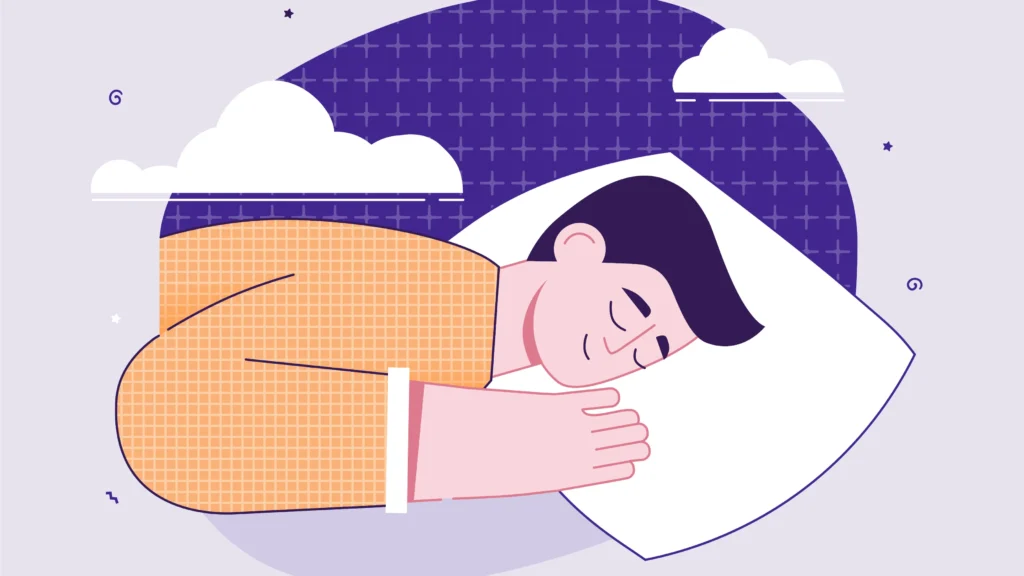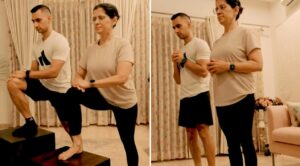Sleeping Right: The Ideal Directions for Better Rest and Positive Energy

Sleeping Right: The Ideal Directions for Better Rest and Positive Energy
We often invest in the perfect pillow, cozy blankets, and a peaceful ambiance to improve sleep quality. But what if the direction you sleep in is just as important as comfort? It may sound surprising, but both ancient wisdom and modern theories suggest that the direction you position your body while sleeping can influence not just how well you sleep, but also how you feel physically and mentally.
Curious Which Direction is Best for Sleep? Here’s What You Should Know
Sleep is more than just rest—it’s a time when your body recharges and your mind resets. The orientation of your body, especially the direction your head and feet face, can affect your energy levels, mood, and overall well-being.
Different directions are said to interact with the Earth’s natural energy fields in different ways. Aligning yourself properly may help you wake up more refreshed and emotionally balanced. Let’s break down which directions are considered beneficial and which ones you might want to avoid—according to both traditional beliefs and scientific perspectives.
Why Sleep Direction Matters
While it might seem like a minor detail, the orientation of your body during sleep is believed to impact your mental, emotional, and even physical health. Both science and tradition suggest that the Earth’s magnetic field interacts with our body, and the way we position ourselves at night can either harmonize or conflict with these natural energies.
The Best Directions: East and North for Feet
If you want to wake up feeling fresh and balanced, placing your feet toward the east or north is generally recommended. Here’s why:
East-facing feet: Aligning your body in this direction is thought to promote peace, focus, and a calm state of mind. It is especially beneficial for students and professionals who require high levels of concentration and mental clarity.
North-facing feet: While not as widely emphasized as the east, sleeping with your feet pointing north is also considered acceptable and safe. This posture may help balance your body’s energy with the Earth’s magnetic field, contributing to a restful and undisturbed sleep.
The Direction to Avoid: Feet Toward the South
One direction that stands out as a clear no-go is south-facing feet.
According to Vastu Shastra, sleeping with your feet pointed toward the south can lead to an increase in negative energy around you. This orientation is believed to disrupt your body’s energy flow and may result in restlessness, anxiety, or even physical discomfort.
From a spiritual and symbolic perspective, the south is also associated with the direction of death in many Indian traditions, which is why it’s commonly avoided while sleeping.
What About the Head? North or South Is Best
In addition to where your feet should point, the direction your head faces is equally important.
As per traditional beliefs, your head should ideally be placed toward the south or north.
This helps maintain the natural energy flow in your body and aligns you better with the Earth’s magnetic forces.
When your head faces the south, it’s believed to draw in positive energy and help you sleep more deeply. Meanwhile, sleeping with your head to the north is often associated with enhanced memory, calmness, and balance.
The Natural Choice: North and West for Feet
To sum it up, the most natural and balanced sleep position is with your feet toward the north or west, depending on your room’s layout and personal preferences. These directions are believed to support better alignment with the Earth’s magnetic field, resulting in improved sleep quality and overall well-being.
While we often focus on comfort when choosing how and where to sleep, ancient wisdom and modern science suggest we should also pay attention to direction. It’s not just about how soft your mattress is—it’s about how well your body aligns with the invisible energies of nature.
Remember, a peaceful night’s sleep isn’t just about shutting your eyes. It’s also about tuning in to the natural world around you.
Disclaimer:
The information shared here is based on general knowledge, traditional beliefs such as Vastu Shastra, and commonly held perspectives. It is not meant to replace medical advice or scientific guidance. Individual experiences may vary, so it’s always best to follow what feels right for your personal well-being and consult a healthcare professional if you have specific sleep-related concerns.












